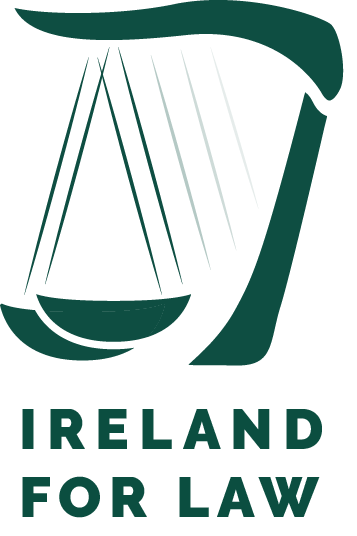Ireland for Law
1.12.2021

The Government of Ireland has adopted a strategy to promote Irish law and Irish legal services to international business in recognition of Ireland being the only English-speaking common-law jurisdiction in the European Union. With its highly developed legal services sector, it is a jurisdiction of choice for commercial contracts and international dispute resolution.
Ireland is recognised internationally as a leading global centre for international financial services. At the end of 2019, over 430 financial institutions employing over 47,000 people provide financial services to every major economy in the world from Ireland. Ireland is home to 9 of the world’s top 10 software companies and 15 of the world’s top 25 financial services companies and is a global leader in aviation leasing, a global tech hub, and a world leader in funds, insurance, pharma and life sciences. Irish lawyers advise and represent each of these sectors.
The global legal services market is dominated by North America and Western Europe which together hold a 70% share of the total market. After the United States, the United Kingdom is the second largest market in the world, with approximately 10% of global fee revenue and 20% of the European market. The US and UK legal systems have such a large market share because international business prefers the certainty of the English speaking common law system.
English law is particularly dominant in European financial services, large commercial transactions and infrastructure projects, and London has been a natural European hub for US law firms. While recognising that London will remain a key international legal services hub after Brexit, it is clear that some legal services will no longer be carried in London or be subject to English law.
Many different factors will influence the move away from London or English law:
- Some EU Regulations or Directives may require contracts to be subject to an EU member state law or have an EU member state jurisdiction clause. This is not common now but is already present in some financial services legislation such as MIFiR (Markets in Financial Instruments Regulation) and AIFMD (Alternative Investment Fund Managers Directive). This trend is likely to increase in European financial services legislation.
- Where industrial or consumer products are being sold onto the European market, with EU standards, it is desirable to have disputes resolved in a member state. The courts of a member state will apply the law in relation to EU standards as stated by the Court of Justice of the European Union. Contracting parties cannot be certain what approach the UK will take to future decisions of the Court of Justice.
- UK registered lawyers will no longer have automatic rights of audience before the courts of the EU member states, or before the Court of Justice. They are unlikely to be able to assert lawyer / client privilege when representing their clients before the European Commission.
- Where a US company is contracting with a European counterparty, the European counter party is unlikely to choose the contractual law of a non-member state such as England.
- Over time, there will be fewer English lawyers trained in EU law.
- There is considerable uncertainty as to whether and how the judgments of the English Courts will be enforceable in the member states of the European Union.
Ireland presents a natural choice where an international company needs to use a European legal system and has previously used English law. Ireland’s legal system is similar to that of the UK, with the same court structure, and a highly developed legal services market. Many Irish law firms have a global presence and currently advise the many international corporations already present in Ireland. Ireland’s Commercial Court has experienced commercial judges who hear and determine disputes in an efficient and timely manner.
Even before Brexit happens, the Irish legal services market is already changing and developing:
- There have already been several new entrants to the market: DLA Piper, Dentons, Covington, Clark Hill, Pinsent Masons, Simmons and Simmons, Fieldfisher with more expected.
- Some financial services institutions have already started lending under Irish law, when they might previously have used English law.
- ISDA, the world’s largest provider of standard form derivative documentation have now published Irish (and French) law versions of their standard documentation.
The Government of Ireland are committed to ensuring that Ireland’s legal system is responsive to the needs of the international business community. In order to develop this strategy, it established an Ireland for Law Implementation Group in October 2019, to report on how best to continue improvement to the Courts system and make legislative change where required. For more information see www.irelandforlaw.com



